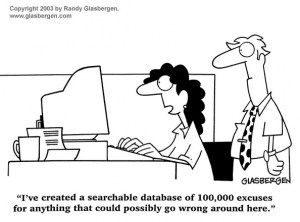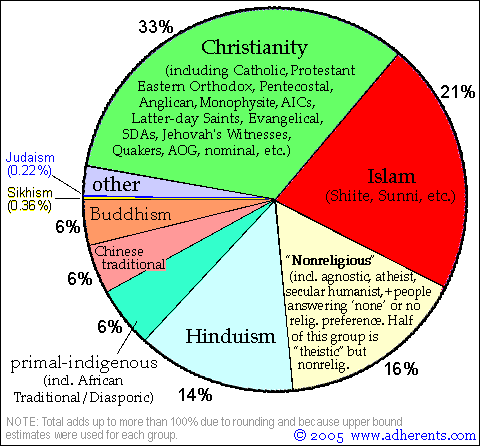 Dawkins
Someone brought up a post from another blog about Dawkins arguments against Christianity so I thought it would be good to re visit this post
Dawkins
Someone brought up a post from another blog about Dawkins arguments against Christianity so I thought it would be good to re visit this post
Several atheist scientific types make the claim that science
disproves God. Here I’ll look at three of the major writers who make
such claims: Dawkins, Stenger, and Krauss. In dealing with this topic
the first thing to keep in mind is that all three illustrate the use of
reductionism and its ideological assumptions in their work. In fact
their arguments are only possible given their reductionist assumptions
because they are only dealing with a concept of God that reduced God to
the level of a great biological organism in the sky. Of course they
have to do this because if they did not they would have no business
even thinking about God. They must assume God posses the qualities of
such an organism for him to even be amiable to their domain. Science
has no business discussing God since God is the basis of reality and
not a thing in creation. God is not given in sense data, thus can’t be
subject to scientific proof or disproof. In fact the arguments I will
examine here really amount to a bait and switch. They claim to disprove
something that can’t be dealt with as part of their domain. In trying
to drag God down to the level of the scientific domain they are merely
creating a straw man, or “straw God” argument.
Richard Dawkins made one of his major media splashes and scored a big hit for the cause by publishing
The God Delusion.(1)
The lynch pin of the book is the argument against the existence of
God, which turns upon reversing the design argument. The role of
science in this argument is really a deception because they actually
have no data that demonstrates the lack of God. All he really does is
present evidence for a materialist explanation (featuring evolution)
then assumes that evolution rules out God by making him unnecessary.
This is not actually a disproof and it depends upon Dawkin’s notion of
“necessary.” What he means by God is not necessary for his purposes.
This
assertion about God is shrouded in the mystique of science as the only
knowledge. It becomes encoded in the fortress of facts mentality and
then is looked upon as “official scientific proof,” by the faithful.
Dawkins never actually says what concepts of God he’s dealing with, yet
the only one he ever does deal with is a crass version of “Bible god’
that is sort of chick comic books special “big man in the sky.”(2) We
have a major Hint in that he doesn’t deal with any other concept.
To
be fair Dawkins does deal with poly theism. That creates the illusion
that he’s dealing with other models of God, but he’s not because the
polytheism with which he deals is based upon separate versions of the
one comic book noting, the big man in the sky. Instead of one sky
father we have several. It’s the same thing. From pages 29 to 37 the
entire section designated “polytheism” he avoids mentioning anything
about polytheistic views after the first program.(3) From 37 to 46 all
he does is talk about what he doesn’t like about the God of the
bible.(4) In fact he admits that he means to deal mostly with
Christianity and tires to actually remove other religions such as
Hinduism form the category of religions!
I
shall have Christianity mostly in mind, but only because it is the
version with which I happen to be most familiar. For my purposes the
differences matter less than the similarities. And I shall not be
concerned at all with other religions such as Buddhism or Confucianism.
Indeed, there is something to be said for treating these not as {38}
religions at all but as ethical systems or philosophies of life.(5)
I’m
sure the followers of Hinduism would be shocked to learn they don’t
believe in God. This is clearly a bait and switch. He’s replacing
legitimate theological and philosophical concepts with a straw god
argument that’s easy to beat. He knows he can’t disprove any actual
theological notions so he has to reduce God belief to the big man in the
sky so he can make it subject to his dictates as a purveyor of
scientifically based ideology. That way he doesn’t have to take on the
great thinkers of Christian theology. He can dismiss Aquinas and
Whitehead and so on the basis that “these are just those liberal guys
that one listens to.” In effect he’s making his own atheist straw man
(straw God) argument. Straw man is when you make an argument that is a
mock version of what your opponent says it is tailored to your own
level of refutation so you can beat it easily, then you claim you beat
the opponent’s argument. So the major and most sophisticated God
concepts, the one’s that bring belief into the modern era, he just
ignores. He makes a thing of beating up on pre scientific concepts of
the big sky father which is an anthropomorphism that no educated theist
in the modern world worries about. He doesn’t actually disprove it. He
has no smoking gun, no God DNA to disprove, no black God finder box
that shows there’s no God. All he really has is an argument that the
antiquated sky father doesn’t fit with evolution. To him this is
“disproof” of God.
The lynch pin of his argument is
found in a chapter entitled “why there almost certainly is no God.”(6)
As we have seen it really has nothing do with most concepts of God
that educated thinkers in the modern world care about. It really should
be called “why there almost certainly is no old man in the sky.” His
arguments basically amounts to reversing the design argument by
reducing God to the level of biological organism and then applying
concepts of biology and probability to make it seem God would be more
complex and that’s less probable.(7) He calls this argument the
“ultimate Boeing 747 gambit.” (8) It’s based upon reversing the idea
used to defend the conventional design argument that evolution is like
expecting a 747 to assemble form hurricane in a junk yard.
It was actually atheist Scientist Fred Holye who made this analogy. Dawkins takes this to be the creationists favorite argument.
Some
observed phenomenon — often a living creature or one of its more
complex organs, but it could be anything from a molecule up to the
universe itself — is correctly extolled as statistically improbable.
Sometimes the language of information theory is used: the Darwinian is
challenged to explain the source of all the information {114} in
living matter, in the technical sense of information content as a
measure of improbability or ‘surprise value’. Or the argument may invoke
the economist's hackneyed motto: there's no such thing as a free lunch
— and Darwinism is accused of trying to get something for nothing. In
fact, as I shall show in this chapter, Darwinian natural selection is
the only known solution to the otherwise unanswerable riddle of where
the information comes from. It turns out to be the God Hypothesis that
tries to get something for nothing. God tries to have his free lunch and
be it too. However statistically improbable the entity you seek to
explain by invoking a designer, the designer himself has got to be at
least as improbable. God is the Ultimate Boeing 747.(9)
The
crux of the issue is this, most people think that coming about random
chance is chance in the absence of design and that makes it less
probable that it could happen (like the chances of junk blowing around
to form 747. The fact is, according to Dawkins, Darwin’s concept of
natural selection actually explains the changes better and provides the
mechanism that replaces the need for a designer. Dawkins argues that
before Darwin thinkers such as Hume understood that design is not eh
only alternative to chance, they had no mechanism for the alternative
and that’s what Darwin offered them, graded transitions through natural
selection. That is it. No secret mathematical formula, no astronomical
observations, no data form the dreaded black box, no peering into the
microscope to see a label saying “nature by chance.” The whole argument
is just that we don’t need big man in sky to explain word because we
have random change, and that is made more rational and covers for
seeming design features by natural selection.
Dawkins
spends a lot of time dealing with the issue of complexity. Complexity
is not only important in terms of design vs chance (the more complex
the less chance of coming about randomly) the irreducible complexity
concept seems to be one of the major things the ID people have going
for them. The irreducible complexity is all or nothing. An eye badly
formed wouldn’t make it. How could such a complex mechanism just spring
up one day? It only works in its entirety so a gradual slow
progression makes no evolution. They would not pass on the trait for a
half formed eye because it’s not enabling survival. Dawkins answers
this by discussion of Darwin’s concept of “decent with
modifications.”(10) Dawkins points out that creationists love to site
Darwins passage about the problems of the eye. The joke is on them
since he was only using this as a rhetorical device to draw them in and
“lower the boom” so to speak. His answer is basically that the
assumption of all or nothing is fallacy. There is value to half an eye
or half a wing. For example cataract patients may not be ale to see
well but they could see well enough not to walk off the cliff. Half a
wing will not enable the bird to fly south for the winter but it might
lessen the fall from the nest.(11) He spends most of the chapter
beating the ID movements dead horses and gloating about how much
smarter he is than religious people. ”One of the truly bad effects of
religion is that it teaches us that it is a virtue to be satisfied with
not understanding.” (12) This is coming form the guy who says “we
don’t’ need to read theology because we know it’s stupid.” For the
record, I am not an ID guy or a creations, I'm a Darwinian and what has
been said in this paragraph is why. How that effects his theory of
"religion breeds ignorance," the reader can decide.
He’s
so carried away with admiration for his superiority he can’t resist
going after Dietrich Bonhoeffer (major theologian of 20th century) as
an example of one who teaches us to be content with no understanding
and who worships the gaps. He asserts that Bonhoeffer loved the gaps
but laments their closing.” What worries thoughtful theologians such as
Bonhoeffer is that gaps shrink as science advances, and God is
threatened with eventually having nothing to do and nowhere to hide.”
(13) Unfortunately, despite his great superiority Dawkins just doesn’t
read far enough in Bonhoeffer to see that what he’s really saying is
that this is an warning to Christians not to make God of the gaps
arguments. He’s merely telling them what any good logician would tell
them, if you base your view of God on the gaps, they are likely to be
filled. That means we should base our knowledge of God upon what can be
deduced logically rather than upon gaps in science. Which is exactly
what Dawkins would support were it not advice about making good God
arguments. So the uber mensch just forgets to follow his own advice
and not be content to not understand. Had he known this he might have
read more Bonhoeffer. Uber Menschen are like that. While we are on the
subject of Bonehoeffer there’s no reason to think that he is a favorite
of creationist or that he was one himself. The existence of God was a
done deal for Bonehoeffer. Like most liberals he didn’t care much about
arguments on that score because he didn’t have any trouble believing
and he didn’t see belief as necessitated upon proving something.
From
pages 125 to 143 Dawkins is trashing creationists. He gives it to Behe
and others. Its’ not until 142 or so in the chapter entitled, “The
Anthropic Principle Cosmological Version,” that he settles down to
business and makes the 747 argument in full. I skip over the content of
this merely because it’s important to my views. I am not a
creationist, I have no problem with Dawrin per se, I’ve already
indicated the major thrust of my position that he’s just running a straw
God argument; he can disprove all old men in the sky he cares to that
doesn’t effect the Christian God. Dawkins discusses the anthropic fine
turning argument. Of course he asserts that there is a multiverse and
we just happen to live in one of the space/times that worked out for
life. Because there are a whole bunch of choices, maybe infinitely,
there are opportunities for the problems and dead end universe to be
played out but we just happen to get in the one of the ones that works.
The problem with this is it’s just another version of assuming the
reason to believe in God is about explaining things. We don’t need God
as an explanation so there must not be a God. That’s not proof of
anything accept that maybe there’s another reason to believe besides
explaining the physical universe.
At this point
(146-147) he introduces the concept of probability based upon
complexity. That’s really curx of the whole argument. His whole book
really rests on this point. This in itself is the reason he says “there
almost certainly Is not God.
It
is tempting to think (and many have succumbed) that to postulate a
plethora of universes is a profligate luxury which should not be
allowed. If we are going to permit the extravagance of a multiverse, so
the argument runs, we might as well be hung for a sheep as a lamb and
allow a God. Aren't they both equally unparsimonious ad hoc hypotheses,
and equally unsatisfactory? People who think that have not had their
consciousness raised by natural selection. The key difference between
the genuinely {147} extravagant God hypothesis and the apparently
extravagant multiverse hypothesis is one of statistical improbability.
The multiverse, for all that it is extravagant, is simple. God, or any
intelligent, decision-taking, calculating agent, would have to be highly
improbable in the very same statistical sense as the entities he is
supposed to explain. The multiverse may seem extravagant in sheer number
of universes. But if each one of those universes is simple in us
fundamental laws, we are still not postulating anything highly
improbable. The very opposite has to be said of any kind of
intelligence. (14)
Of course we
must observe once again, he’s dealing with the big man in the sky. He
sees God as thinking. Why would God need to think? He sees God as “an
agent” who is calculating. God knows all, why would he need to
ratiocinate? God could be considered an agent in some senses but why in
the sense of pondering and considering? Dawkins needs him to do this
so his argument can work. The argument being that God has to be more
complex than the universe in order to create it. If he’s more complex
then he’s more improbable. There are several things wrong with this
idea.
I have already dismissed all such
suggestions as raising bigger problems than they solve. But what
attempts have theists made to reply? How do they cope with the argument
that any God capable of designing a universe, carefully and
foresightfully tuned to lead to our evolution, must be a supremely
complex and improbable entity who needs an even bigger explanation than
the one he is supposed to provide?(15)
He
takes on Richard Swinburne and his attempt at answering the problem.
Swinburne essentially sees the world of atomic and subatomic particles
as chaotic and complex and brings God in as a stabilizing force because
God is simple compared the structure of this tiny world. Dawkins sees
this as absurd. Form him the world of atomic and subatomic forces is
beautifully simple. It’s just one idea that no matter the fact that
there are many of the same kind of tiny thing. That is simple. “But how
can Swinburne possibly maintain that this hypothesis of God
simultaneously keeping a gazillion fingers on wayward electrons is a
simple hypothesis?”(16) Swinburne is arguing that God is only a single
substance (no parts) Dawkins sees this as a trick. He argues hat
Swinburne is asserting this “without justification.” Of course that’s
mere ignorance. There is a long tradition in thinking that spirit is one
substance not made up of parts or of tiny particles. In trying to
carry off this argument Dawkins really tips his hand. He quotes the
following passage from Swinburne:
Theism
claims that every other object which exists is caused to exist and kept
in existence by just one substance, God. And it claims that every
property which every substance has is due to God causing or permitting
it to exist. It is a hallmark of a simple explanation to postulate few
causes. There could in this respect be no simpler explanation than
one which postulated only one cause. Theism is simpler than polytheism.
And theism postulates for its one cause, a person [with] infinite
power (God can do anything logically possible), infinite knowledge (God
knows everything logically possible to know), and infinite
freedom.(17)
This quotation
gives the idea that God is simple as an explanation not as a “force” or
“entity.” Theism posits one cause to which all phenomena can be taken
back, causes everything. Now Dawkins is going to trade on the
distinction between the simplicity of explanation and simplicity, for
want of a better term, “nature.” He observes that Swinburne says God
can’t do logically impossible things. Dawkins finds nothing more to
interject in response to this point than incredulity. God’s power,
aside form logically necessity/impossibly is endless and Dawkins to
resents it. AT this point he evokes the concept of God’s complexity of
nature than answer the idea above about simplicity as exploitation. So
he’s actually talking at cross purposes. He says a God who could keep
up with the individual status of every particle would have to be
immensely complex. That is in terms of his own nature not the place
occupies logically an expiation which is not in the sense above. They
talk at cross purposes. Swinburne says God is simple as an explanation,
Dawkins says God is complex as an "entity."
Dawkins
also bring in Keith Ward, Dividity professor at Oxford. Again the same
thing. Ward is talking about God as hypothesis being elegant:
As
a matter of fact, the theist would claim that God is a very elegant,
economical and fruitful explanation for the {150} existence of the
universe. It is economical because it attributes the existence and
nature of absolutely everything in the universe to just one being, an
ultimate cause which assigns a reason for the existence of everything,
including itself. It is elegant because from one key idea — the idea of
the most perfect possible being — the whole nature of God and the
existence of the universe can be intelligibly explicated.(18)
Yet
Dawkins is talking about how complex God would be as an “entity” as
though he has to have lots of parts. Dawkins seems to know something is
wrong by tries to cover by making out as though it’s Ward’s fault:
“Like Swinburne, Ward mistakes what it means to explain something, and
he also seems not to understand what it means to say of something that
it is simple. I am not clear whether Ward really thinks God is simple,
or whether the above passage represented a temporary ‘for the sake of
argument’ exercise..” He’s saying Ward doesn’t know what simple means
when in fact he doesn’t get that he’s making a parsimony claim. He’s
saying all the different problems aspects of origin are summed up in
this one answer, the use of the term “elegant” is a dead giveaway that
it’s parsimony. By the same Token Swinburne is making the same sort of
patrimony claim. Dawkins’s answer doesn’t even apply to make it seem
that it’s their fault something is wrong, he as makes as they don’t get
his argument right when in fact they wrote first he’s bring them to
make a straw man argument. Like most straw man arguments he has to
stretch to get it to fit.
Dawkins entire argument
turns upon the reduction of God from the level of ground of being or
something beyond or understanding, some basis of reality, that of a
giant biological organism. Dawkins straw God doesn’t know, he has to
monitor and keep track, he has to be complex enough to keep track of
all the sub atomic particles and so on. As the ground of being God
would be intimately connected to everything, Dawkins’s straw God would
have to keep watch on each and ever particle. Dawkins actually does
make this point (see fn on his answer to Ward). Since God is not a big
man in the sky or a big biological organism what would be the
consequences of his being complex? The reason complexity comes into it
is because Dawkins wants that to be the guide to probability. Now to
measure the probably of something it must be quantifiable and it must
be observable. Thus to even consider God as a subject of the concept of
probability he has to be observable. So that sort of skews the whole
business right there. Moreover, how can one fix a “probability” for the
basis of reality? That’s like trying to time a speedometer with the
speedometer itself. Or trying to weigh a scale with the scale being
weighed. The whole issue is, like the consciousness issue, more
reductionism bait and switch.
If God was complex I
don’t see how it could be reasoned as less probable by the standards of
ordinary probably nor would it be a problem for God. Surely an
infinite God could handle the demands of complexity since it would not
be the sort of complexity we know in the physical world. God is not
made up of parts. It’s not as though God is a Rube Goldberg machine.
God’s complexity would surely be of a totally different ilk than
anything of which we know. What would it mean to say God is complex? If
God is not made of atoms and has no moving parts, not produced by a
brain then what exactly is complex? If it’s his understanding that’s
complex I don’t see how that would render him less probable since it’s
the complexity of parts that determines probability. The basis of
knowledge would not be proportional to any biological brain chemistry or
anything of that nature in thinking of God. The whole argument is just
a trick of reductionism. It’s a straw God argument that might work on
the comic book God of fundamentalism who is a big man in the sky but it
doesn’t work on more sophisticated concepts such as process theology
or Tillich’s notion of God as being itself. If we think of God as a
universal mind, the super-essential Godhead of Dionysus the Areiopagite,
the whole concept of complexity as we understand it in relation to the
physical is just a passing fancy I mind we can’t understand.
Richard
Dawkins, The God Delusion. Boston, New York: The Houghton Mifflin
Company, 2006. All quotes from this source will be from online copy of
the text URL: http://macroevolution.narod.ru/delusion/delusion.htm all
page numbers apply to free ebook.
find chick
(1) Dawkins, ibid, 29-37.
(2) Ibid, 37-46
(3) ibid, 37
(4) ibid, 113
(5) ibid
(6) ibid.
(7) ibid. 114
(8) ibid. 115-122
(9) ibid. 123-124.
(10) ibid 125 “the worship of gaps”
(11) ibid.
(12) ibid, 146-147
(13) ibid 147
(14) ibid
(15) Swinburne quoted by Dawkins, ibid 148-149
(16) Ward, quoted by Dawkins ibid 149-150
(17) ibid 150
(18) Ward quoted by Dawkins 149

More than four-in-ten Catholics in the United States (45%) do not know that their church teaches that the bread and wine used in Communion do not merely symbolize but actually become the body and blood of Christ. About half of Protestants (53%) cannot correctly identify Martin Luther as the person whose writings and actions inspired the Protestant Reformation, which made their religion a separate branch of Christianity. Roughly four-in-ten Jews (43%) do not recognize that Maimonides, one of the most venerated rabbis in history, was Jewish.







